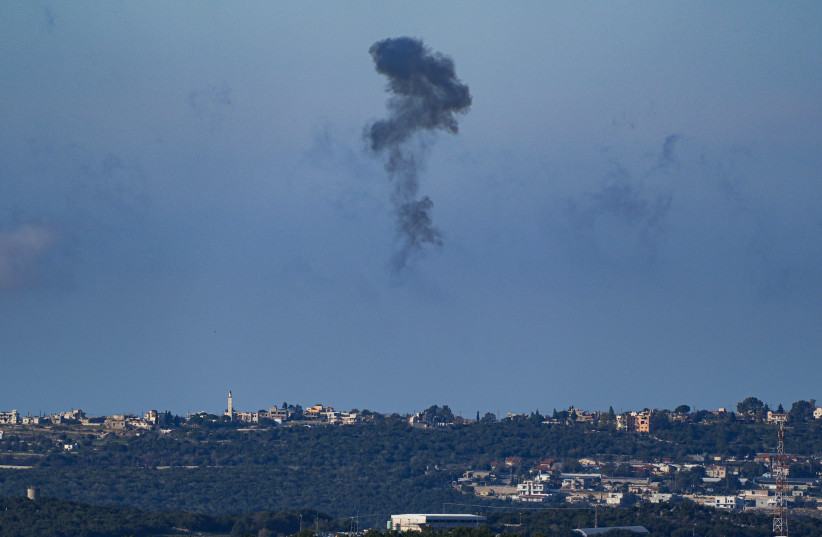Three senior members of Hezbollah were killed in an Israeli UAV attack on a vehicle in southern Lebanon, the IDF confirmed on Tuesday evening.
Two sources who spoke to Reuters said that the attack, which took place in Ghandouriyeh, was a targeted drone strike on a vehicle. As per Israeli media, one of those killed in the drone strike is the terrorist responsible for the organization's drone operations.
Hassan Abeid al-Hussein Ismail, the head of Hezbollah's drone operations in southern Lebanon, was reportedly responsible for the assaults of hostile UAVs into northern Israeli towns since October 7.
The targeted killing took Hezbollah's total number of casualties up to 158, as per the terror organization.
Israel has been expecting a Hezbollah response since the assassination of the commander of Hezbollah's Radwan Force, Wissam al-Tawil, on Monday.
Hezbollah stated on Tuesday that they sent an attack drone to target the IDF's Northern Command base near Safed. The IDF confirmed that a grounded UAV was detected at the base in the north of the country, with no damage and no casualties.
The IDF also stated that fighter jets attacked Hezbollah infrastructure in the village of Kafr Kila in southern Lebanon on Tuesday and that fighter jets were also dispatched to attack a squadron of UAVs launched from Lebanon.

Israel expected Hezbollah response
Israel has been bracing itself for a heavy response from Hezbollah since the killing of senior Hamas official Saleh al-Arouri, the terrorist organization's deputy leader outside Gaza, last Tuesday in an alleged Israeli drone strike in Beirut. Israel was also behind the assassination of the commander of Hezbollah's Radwan Force, Wissam al-Tawil on Monday.
Some 80,000 Israeli civilians have been displaced since October and had to leave around 40 communities in the north. “Since Hezbollah began its attacks, the IDF has been responding by striking Hezbollah targets in Lebanon,” IDF Spokesperson Rear Admiral Daniel Hagari noted in December.
Meanwhile, Defense Minister Yova Gallant on Tuesday told US Secretary of State Anthony Blinken that increased US and global pressure on Iran could prevent a regional war.
"Increasing pressure on Iran is essential and could prevent a regional escalation on additional fronts," said Gallant in a not-so-veiled reference to Hezbollah in Lebanon in the North, as well as even potentially Syria and Yemen's Houthis.
Regarding Hezbollah, Gallant said Israel still prefers a diplomatic solution which sends Hezbollah far enough away from the border that Israel's northern residents will feel safe returning to their homes.
The defense minister also gave Blinken an update on the state of the IDF's invasion of Gaza and how far along it is in dismantling Hamas.
Gallant said that new integrated warfare methods with the air force and other heavy fire vehicles had helped the IDF quickly defeat Hamas in northern Gaza, while it will continue more gradually but steadily to defeat Hamas in Khan Yunis until it gets to Hamas's leaders and the remaining around 136 Israeli hostages.